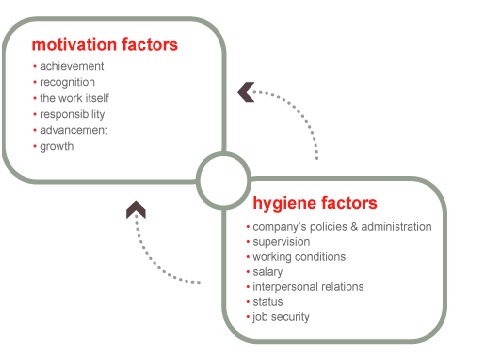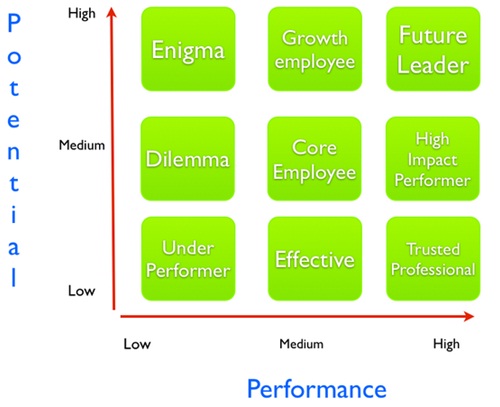- Articles ›
- Human Resources ›
- "Succession Planning" - Challenges For An HR Manager Articles
"Succession Planning" - Challenges For An HR Manager
In contemporary times, owing to competitive environment, it has become imperative for the Organizations to take decisions which give them sustainable competitive advantage over their competitors. For taking sound and effective decisions talented and competent people are required at Senior and crucial positions in an Organization.
Warren G. Bennis has famously quoted “Great things are accomplished by talented people who believe they will accomplish them. Hence, identifying a talent, giving them proper facilities (e.g. training, competency building etc.) and keeping them motivated has become important for Organizations in today’s context . Succession Planning can be understood as identifying and developing employees so that they are ready to take key positions in the Organization.

BACKGROUND
Traditionally, Organizations had hierarchical or mechanistic structure; the career plan was long and employees where happy to stay in an Organization. The Job environment was stable and employees were entitled to get regular promotions with certain incentives.
With Change in times, in the current scenario, the Organization way of working has changed drastically. Today companies are having flat or Organic structure. The Chain of Command has decreased drastically as Companies now are following collaborative style of team functioning. Also, employees are now not sticking to one company, given better pay, role etc. they are ready to switch companies. Companies are also on a constant lookout to poach “talented” employees for the key roles in their Organization.
THE CHALLENGE
Giving the Dynamic environment Companies are working today. Identifying, developing and holding an employee has become all more important today.
Certain key Challenges arises for an HR Manager today-
- How to plan for a job position for future when there can be a situation where that particular job might not exist in the near future?
- How to plan for a non-managerial role? E.g. A 5 years experienced developer in an IT Organization who might be very important for Organization’s future but wants to continue as a developer.
- How to keep an employee intrinsically motivated so that he/she remains interested in the present work and keeps on developing skills and competencies, so as to be ready to take “key roles” in Organization?
- How to ensure that the employee is ready to take important strategic decisions in future keeping global and culture perspective in mind.
HR ROLE & RESPONSIBILITY
An HR has a gamut of roles in Succession Planning- Formulating Succession Development Committee, assessing and advising employees, arranging training programs to enhance competency and retaining talented employees.
Let’s take a look on how an HR Manager performs his/her role and responsibility while meeting the Challenges posed in Succession Planning.
Focusing on Roles rather than on a particular Job/Post
An HR Manager has to ensure that the employee selected who is being groomed for the future, should be trained for variety of roles rather than one particular Job Position. This will ensure that overall competency development of an employee is done. In future, if a certain Job position/Post becomes redundant then the trained employee can be utilized in other key positions in the Organization. It will also ensure that the training cost incurred by the Organization will not go down in drain as the trained employee will be ready to take different key positions in the Organization.
Developing a Pool of Resources rather than focusing on few selected Resources
Developing a talented pool of resources, each trained in various competencies and skills, will make sure that an Organization has an adequate number of resources which are capable of taking important roles in Organization both for Short Term as well as for Long Term basis. Also, this solves the issue arising when a Talented Resource leaves an Organization and there is a vacuum created due to this, as now the Organization will have pool of resource that will be ready to take that key position.
Keeping the Identified candidate motivated and interested in the Current Role and clearly conveying their career plan to them
An HR Manager has to look out for ways in which the “talented” employee is kept motivated and interested in his present work. Apart from monetary awards and other benefits, a way of intrinsic motivation can be recognition of achievement like “Employer of the Month”, “Certificate of Appreciation” etc. Also it’s the duty of an HR to keep that employee well informed regarding the career plan chalked out by the Company and constantly taking suggestions and feedback regarding the present work being performed by him/her.
According to Herzberg’s two factor theory on motivation at workplace, there are certain factors which absence causes job dissatisfaction but not de-motivation; while there are other factors which absence causes de-motivation among employees.

Source: http://www.provenmodels.com/files/1e32874bce917e1675a62f04ca026232/motivation_hygiene_theory.gif
HERZBERG’S TWO FACTOR THEORY OF MOTIVATION AT WORKPLACE
The Motivating factors or Job Content Factors which are important to keep employee motivated at workplace are – achievement, recognition of work, the content of the work, responsibility given to an employee, career advancement, and career growth. While, the Hygiene factors or Job Context Factors which keeps employee satisfied are – Company’s Policy, Supervision of work, Working Conditions, Salary given to employees, Interpersonal relations, Status of employee and Job Security. Absence of these factors causes merely dissatisfaction but not de-motivation.
An HR Manager’s role is to constantly look out for Motivating Factors and try to motivate employees by using those. Having a motivated employee will create a sense of belonging in employees for the Company and employees get blended to the culture of the Organization and work according to a Company’s Mission and Vision.
Keeping an employee well trained and constantly building their competency and skills so as to prepare them to meet any uncertain needs of future
An HR Manager has to constantly arrange for training of employees, keeping in mind the future business needs. This will ensure that the “employee” is well trained and is ready to take challenges. With the advent of Globalization, it has now become important that employees should possesses necessary skills such as - working in cross-cultural teams, knowledge of culture of different countries etc. Identifying the correct person to be trained is very important in this regard.
Various Competency Frameworks can be developed to identify the “correct” person. An example of this can be Performance Vs Potential Matrix.

The matrix above shows an employee potential compared to the performance he exhibits. Framework such as these enables Organizations to compare an employee performance compared to his/her potential, this in turn, enables them to gauze and plan which all employees are best suited to take “key” roles & responsibilities in future.
A word of caution here is that an Organization can’t rely heavily on one or other competency frameworks. They have to make/adapt frameworks or models which are best suited for them.
AVOIDING PITFALLS
An HR Manager is prone to make mistake if he/she is not careful enough in Succession Planning. Some of the mistakes that might get committed may be
- Giving too much emphasis on “technical” competency rather than team building and culture awareness.
- “Underestimating” a potential employee and not considering him/her for future.
- Not planning a program intended to lateral movement of an employee, rather than focusing only on upward movement of employee.
- Giving employees irrelevant training that might not be needed or be helpful in future.
- Not having Managers and leaders, who are holding strategic positions in an Organization, a part of Succession Planning.
- Not making potential employees aware of the career plan being planned for them.
CONCLUSION
Succession Planning is very important for Organizations. An HR Manager has to be very cautious and careful while planning for future. A well planned Succession Planning will ensue that Organizations are ready with capable leaders who are ready to take future Business Challenges and key Strategic decisions.
This article has been authored by Divyanshu and Kaushal Kishore from TAPMI.
Views expressed in the article are personal. The articles are for educational & academic purpose only, and have been uploaded by the MBA Skool Team.
If you are interested in writing articles for us, Submit Here
Share this Page on:
What is MBA Skool?About Us
MBA Skool is a Knowledge Resource for Management Students, Aspirants & Professionals.
Business Courses
Quizzes & Skills
Quizzes test your expertise in business and Skill tests evaluate your management traits
All Business Sections
Write for Us